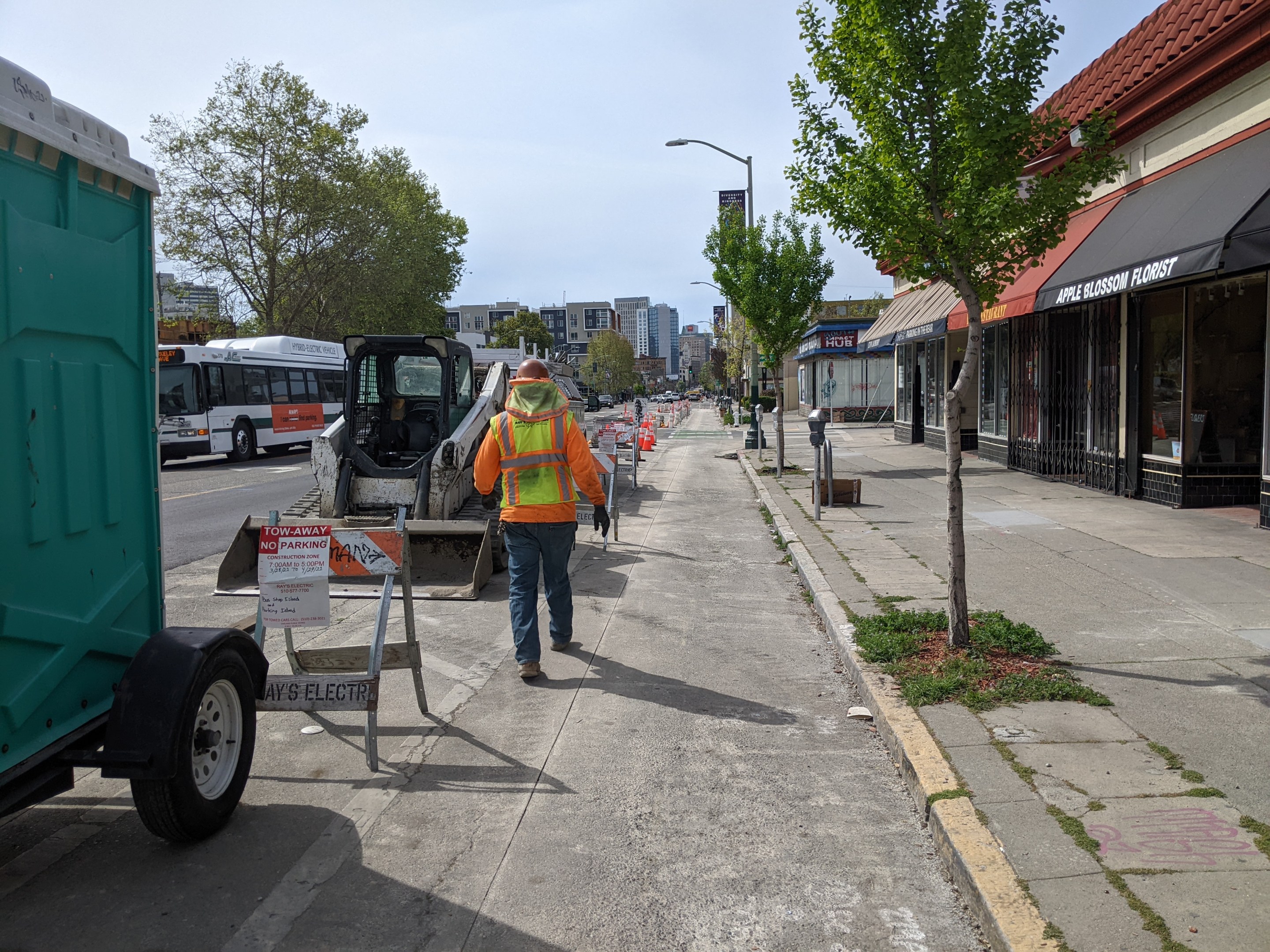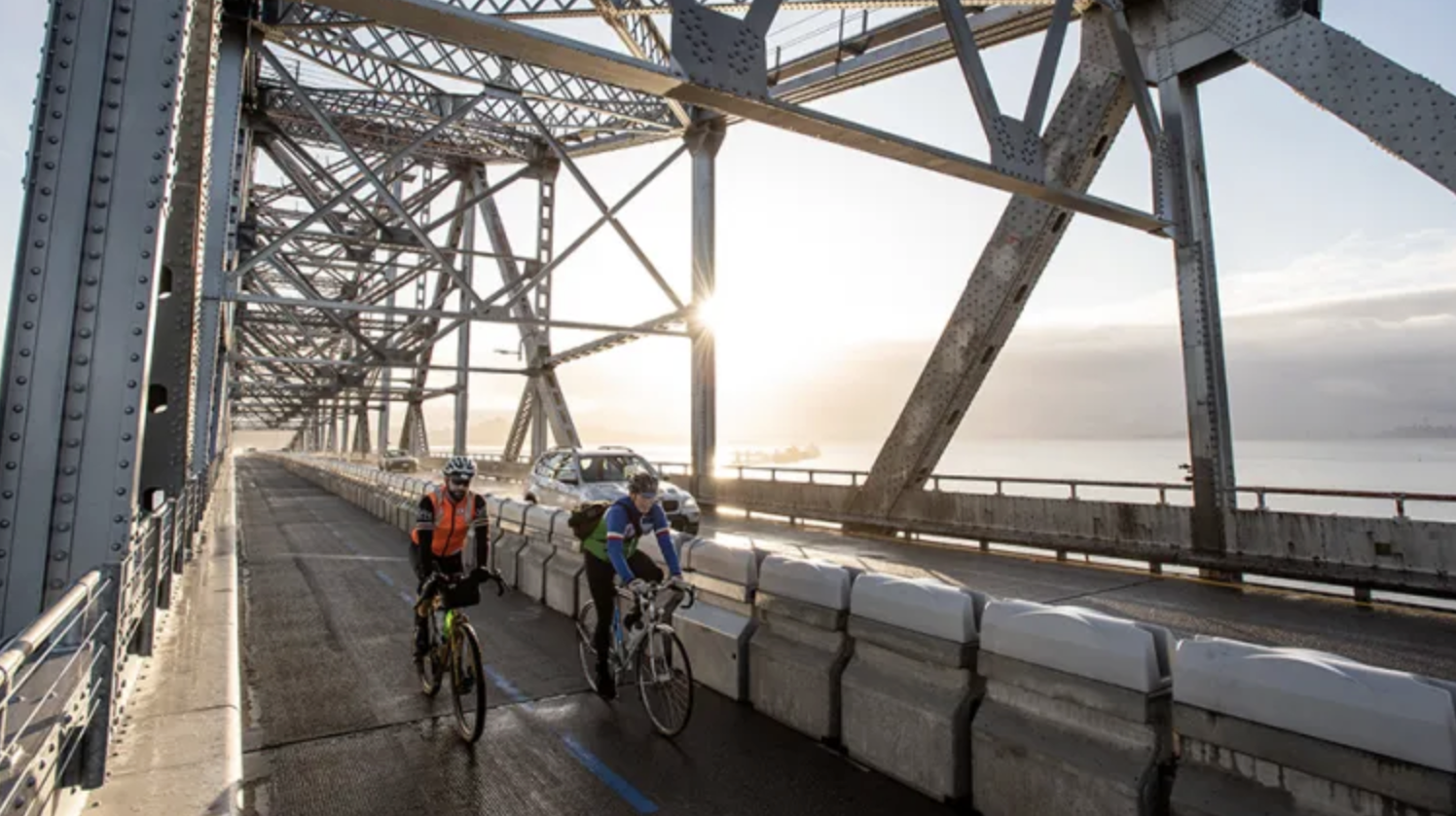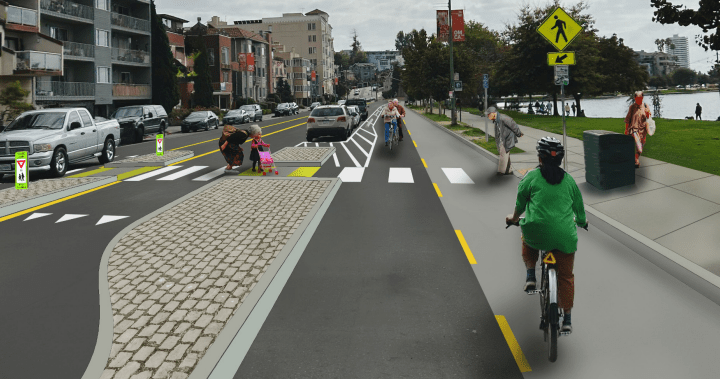Note: GJEL Accident Attorneys regularly sponsors coverage on Streetsblog San Francisco and Streetsblog California. Unless noted in the story, GJEL Accident Attorneys is not consulted for the content or editorial direction of the sponsored content.
In "Has Berkeley declared a ‘war on cars’? One bike lane has come to symbolize a larger battle," the San Francisco Chronicle's Rachel Swan reports on the hyperbole in the debate over adding protected bike lanes to Hopkins Street. From the story:
Berkeley “has declared war on cars, street parking and small businesses,” read the notice at Magnani’s Poultry, which sits on a snug, tree-lined stretch of Hopkins Street where officials plan to build the two-way bicycle path next year, installing barriers and rows of parked cars to separate it from traffic. Confined to the south side of the road, the path would necessitate removal of some 60 parking spaces.
and...
Observers see the whole saga as a distillation of all the madness that can swirl up around bike lanes, and people’s inability to find common ground. One Berkeley resident who said he frequently drives to shop on Hopkins Street seemed to stiffen, asked about the bike lane as he ran errands on a recent morning. “I just hate to see them lose all the parking,” the resident, Stan Pesick, said.
The story reflects the journalism mantra that it's important to "show both sides." And indeed it does, quoting advocates and merchants alike.
The problem is Swan doesn't try to verify or qualify the statements of "both sides" and treats all claims, no matter how outrageous, equally. "It would be great to see more reporting that didn’t create a false equivalence between safety/climate benefits versus perceived inconvenience to motorists," wrote Walk Bike Berkley's Ben Gerhardstein in an email to Streetsblog about reporting on bike lanes.
Indeed, nearly all mainstream media stories about protected bike lanes and merchant districts seem to skip over the actual studies of receipts and the known business impacts of installing them.
"We want the businesses to be successful," Bike East Bay's Dave Campbell told Streetsblog. "We think they will be with a street that's safe and comfortable to use, and we see that elsewhere."
Sales increased in a business district in New York by 12 percent when protected lanes were installed. Just across the bay in San Francisco, receipts went up by 10-21 percent at Fisherman's Wharf when a project widened sidewalks and eliminated street parking. Merchants in Portland, Oregon have even been known to join the fight for protected bike lanes, because they've seen how good it can be for business.
Even in nearby Oakland, despite merchant concerns about loss of parking and customers, receipts went up when protected bike lanes were installed on Telegraph.
That protected bike lanes keep people safe also is not a debate. They just do. There's mountains of evidence.
"It would be good to see actual stats included regarding economic boost from the implementation of cycle lanes--that's the story and the reality," said media expert and bike safety advocate Tom Flood. He was especially critical of an unqualified claim in the Chronicle story by Pete Raxakoul, the owner of a coffee and cheese shop on Hopkins, that "many customers drive in from the Berkeley hills, though some travel from as far away as Pleasanton or Walnut Creek. He’s afraid they’ll stop coming once street parking vanishes."
"People are willing to drive 35 minutes to a specialty store but not possibly park a block away and spend 35 seconds walking to the shop to make safe spaces for everyone?" asked Flood.
In other words, the studied effects of protected bike lanes on merchant receipts and street safety don't change because some angry, irrational crackpots wallpaper the street with fliers. This isn't to pick on Swan. Gerhardstein added that he found her story far more balanced "than all the previous Hopkins reporting."
Still, just quoting both sides isn't enough on its own. Data, facts, and logic need to be part of the story too.





